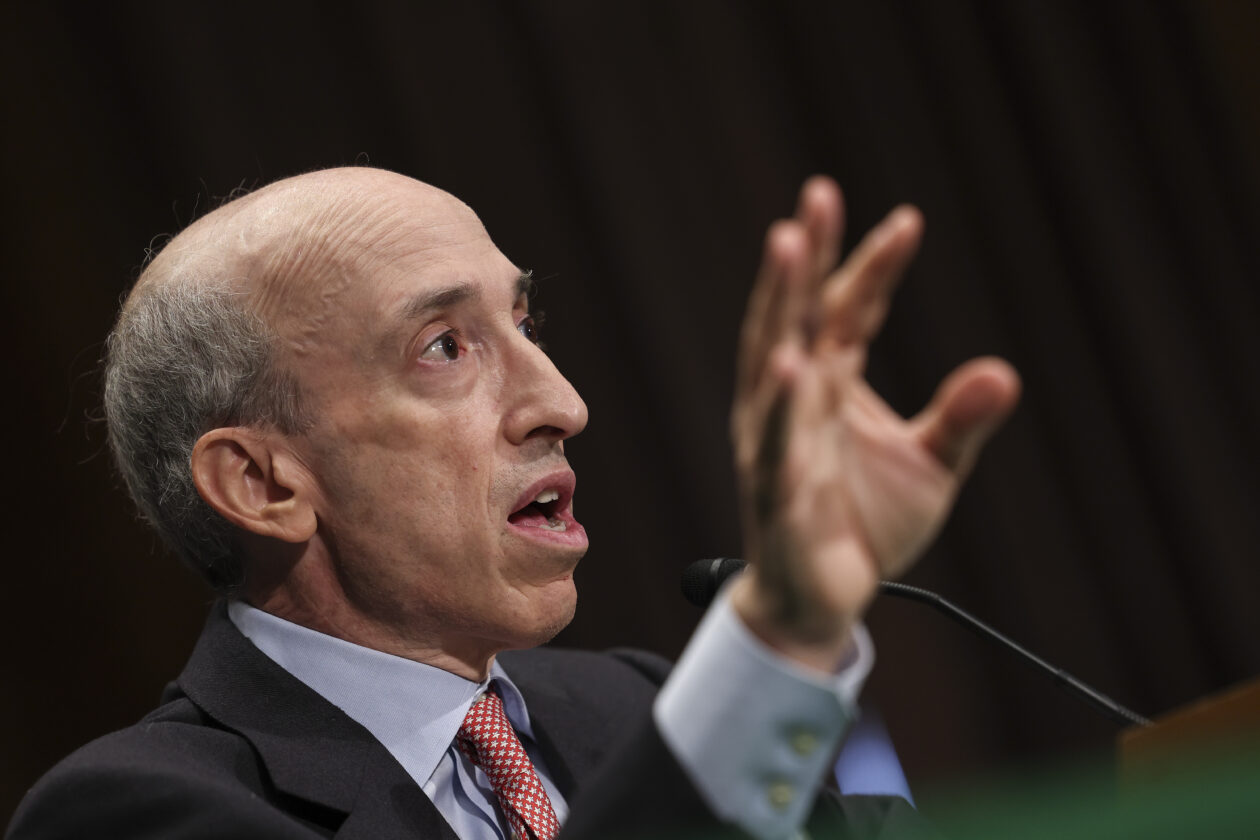After a 2022 that included cryptocurrency exchange failures, bankruptcies, and flurries of fraud allegations, regulators are starting to follow up with a crackdown on the industry in what may shape up to be a year defined by enforcement.
Many in the industry had called for needed clarity around the legal status of different forms of digital assets to help drive out bad actors, but the moves so far this month against the U.S. crypto exchange Kraken and stablecoin issuer Paxos Trust Company have generated quite some angst.
On Thursday, Kraken shut down its crypto staking programs and paid a US$30 million penalty after the U.S. Securities and Exchange Commission (SEC) said they violated securities law. Paxos has stopped minting the Binance USD (BUSD) stablecoin, which has a US$16 billion collateralization, under order from the New York Department of Financial Services.
“The actions of the SEC appear to be way off the mark,” said Marcus Sotiriou, a market analyst at UK-based digital asset broker GlobalBlock. “They have labeled BUSD a security, yet hard pegged stablecoins have no expectation of profit and have a fixed price, like stored value Gift Cards,” he said in an email comment.
In the case of Kraken’s $30 million fine, the money will not go to restitution because there aren’t any victims, said Sotiriou. “Regulation by enforcement is puzzling for crypto enthusiasts,” he added.
That’s a view echoed in the SEC itself.
SEC commissioner Hester Peirce publicly criticized her own agency’s actions against Kraken on Thursday. “A paternalistic and lazy regulator settles on a solution like the one in this settlement: do not initiate a public process to develop a workable registration process that provides valuable information to investors, just shut it down,” Peirce said.
Peirce and Sotiriou also argued that the SEC has told cryptocurrency operations to apply for registration, yet when they do they run into a wall.
“People are desperately trying to figure out how to offer a product legally whilst getting zero guidance,” said Sotiriou.
Much at stake
Just days before the SEC’s action against Kraken, Brian Armstrong, the chief executive of Coinbase Global Inc., the largest U.S. crypto exchange, tweeted he had heard rumors the SEC may be looking to crack down on staking in the industry. The SEC plan was a “terrible idea,” Armstrong said.
Staking refers to the process of crypto investors depositing tokens into certain blockchains to help secure the network and receive rewards in return – typically more tokens. The practice is widely used on various “proof-of-stake” (PoS) blockchains including Ethereum, the second biggest.
“Staking brings many positive improvements to the space, including scalability, increased security, and reduced carbon footprints,” Armstrong said, adding the company will “happily defend” its own staking services in court
A possible crackdown on staking raises questions on the future of Ethereum, the world’s second-largest blockchain, which moved to a PoS consensus mechanism in September last year.
The SEC said that when investors provide tokens to staking-as-a-service providers, “they lose control of those tokens and take on risks associated with those platforms, with very little protection.”
Staking services providers generally are not providing proper disclosures, Gensler said Thursday in a Twitter video. “There’s currently no reliable way, as an investor, to know these important investment questions,” he said
FTX Fallout
However, some commentators said the tough line from regulators is understandable after the Terra-Luna US$40 billion implosion last year, then the collapse of the Three Arrows Capital crypto hedge fund with an estimated US$3 billion in liabilities, followed by the bankruptcy of the FTX crypto exchange amid fraud allegations
“Considering the recent FTX situation, it is natural that the SEC is reacting by imposing more pressure and regulations on the crypto market, such as checking whether stablecoins are backed by trusted securities,” said Stanislav Havryliuk, chief organizational officer at digital asset investment platform Zonda, in an email statement.
Bahamas-based FTX.com was one of the largest crypto exchanges in the world before it collapsed in November last year due to alleged corporate malpractice, wiping out roughly 25% of the cryptocurrency market capitalization as a result.
“Although reaching an agreement between the U.S. regulators and the crypto industry might take a moment,” Havryliuk said, “I believe that the outcome will be beneficial for all parties involved, as all activities are undertaken with the safety of the crypto-based solutions and market participants in mind.”
A stablecoin is a crypto token pegged to the value of an asset — in the case of BUSD the U.S. dollar — and collateralized by the underlying asset. BUSD was co-developed by Paxos and the Binance exchange. The Ethereum-based stablecoin is issued and managed by Paxos.
“Binance licenses its brand to Paxos for use with BUSD, which is entirely owned by Paxos and regulated/supervised by the NY Department of Financial Services,” a Binance spokesperson said in an email statement.
“The staking product of Kraken is, in my view, clearly a security so I wouldn’t say this is a case of overregulation,” Rafael Padilla, lawyer and co-founder of blockchain development organization BlockDevs Asia, said in a Telegram post.
“However, to consider BUSD as a security is still a gray area. The U.S. SEC’s planned legal action against Paxos seems intended to test the notion that a centralized stablecoin could constitute a security.”
The problem for Alex Tapscott, co-founder of the think tank Blockchain Research Institute, is the methods being used by regulators.
“The enforcement that we’ve seen in crypto is uneven, it is arbitrary,” Tapscott said in a video interview with Forkast.
“It seems to single out random actors rather than the worst actors, and I think is in general leading to an erosion of trust in regulators and policymakers to create the conditions for this industry to succeed.”
(With assistance by Jenny Ortiz-Bolivar)






